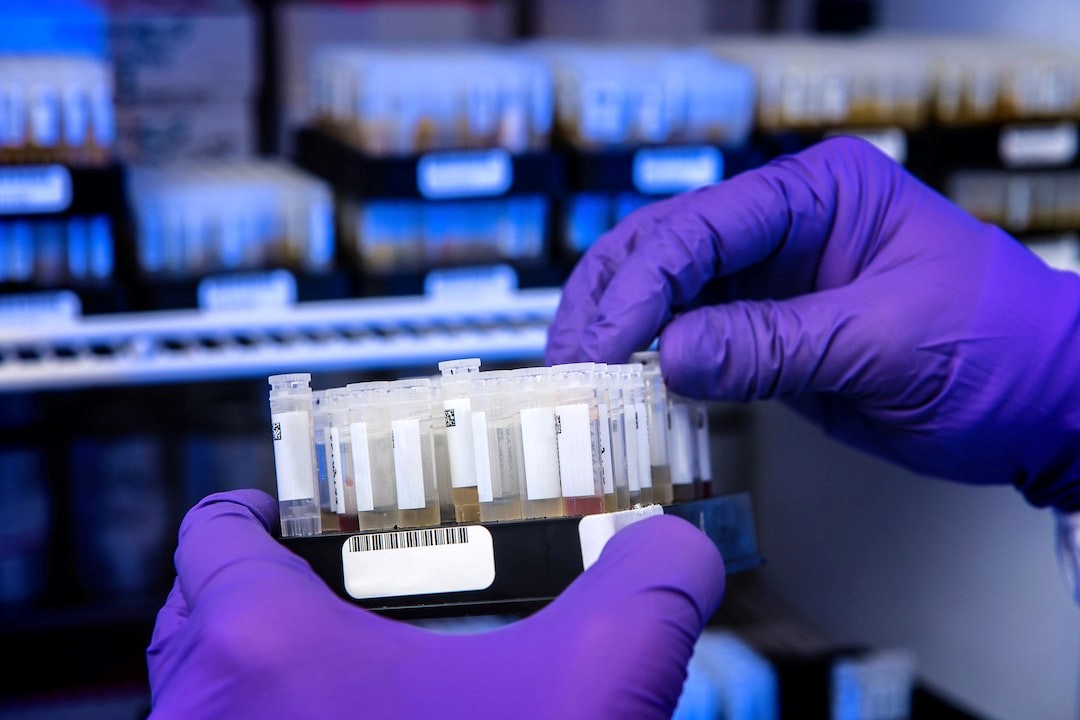Preventive Healthcare
What is IgM Antibody: Function and Testing
4094 Views
0

Are you curious about the world of immunology and how our bodies fight off infections? Your search ends at IgM antibodies. These powerful proteins play a crucial role in both our innate and adaptive immune systems. They help us to detect and eliminate harmful pathogens. This article will explore what IgM antibodies are, how they're structured, and their important functions in diagnostics.
What is an IgM antibody?
IgM is an immunoglobulin M or antibody. It is the largest and first to be produced in response to an infection. It is found in the blood and lymph fluid. It is also a key part of the body’s immune response. IgM antibodies are very effective at neutralising toxins, bacteria, and viruses.
How does IgM work?
IgM works by attaching to the surface of foreign cells, such as bacteria and viruses. They signal other immune system cells to destroy them. IgM also binds to toxins and antigens on the surfaces of these cells. This helps to neutralise them before they can cause harm.
Structure of the IgM antibody
The human immune system is made up of various antibodies. They play different roles in protecting the body from infections and diseases. There are five basic types of antibodies: IgA, IgD, IgE, IgG, and IgM.
IgM antibodies are the first line of defence against foreign invaders like bacteria and viruses. It has a unique structure that makes it highly effective at neutralising these pathogens. Other antibodies have a Y-shaped form with two arms or binding sites. An IgM molecule looks more like a pentagon with five arms.
Each arm of an IgM antibody contains antigen-binding sites. They can recognise specific components on the surface of invading microorganisms. This enables it to bind to multiple antigens simultaneously, forming large complexes known as agglutinins. Agglutinins help trap pathogens and prevent them from spreading throughout the body.
In addition to its pentagonal shape and multiple binding sites, an IgM antibody also has a J-chain protein. It holds its arms together. The presence of this chain allows several molecules to come together in a circular formation called a pentamer.
The specific structure of an IgM antibody gives it superior ability compared to other antibodies when dealing with certain types of infections or diseases requiring immediate action by our immune system.
The function of the IgM antibody
The IgM antibody plays a vital role in both the innate and adaptive immune systems. When B cells come into contact with foreign pathogens, they produce IgM antibodies in the innate immune system. These antibodies then bind to the pathogen's surface, marking it for destruction by other immune cells.
In the adaptive immune system, B cells produce large amounts of IgM antibodies during the initial infection. This primary response helps neutralise pathogens before they can cause harm to the body. As the infection is cleared, memory B cells are created. They allow for a more rapid and specific secondary response if exposed again in the future.
IgM also activates complement proteins in both innate and adaptive immunity. Complement proteins help destroy invading microbes or infected host cells through lysis or phagocytosis.
Role in diagnostics
IgM antibodies play an essential role in the diagnosis of infectious and autoimmune diseases. When a pathogen invades our body, the immune system produces IgM antibodies to neutralise and eliminate it. Therefore, detecting these antibodies is a crucial step in diagnosing infections.
Diagnostic tests for IgM antibodies can determine whether someone has recently contracted an infection, such as COVID-19 or dengue fever. These tests are especially useful when other diagnostic methods fail to provide conclusive results.
In addition to identifying infections, IgM antibody testing is also valuable in detecting autoimmune diseases. Autoimmune disorders occur when the immune system mistakenly attacks healthy cells in the body. Detecting specific IgM markers can help diagnose conditions like lupus or rheumatoid arthritis.
It's important to note that while IgM antibody testing can confirm a diagnosis, it should not be used as the sole means of making medical decisions. Healthcare professionals must consider other factors, such as symptoms and medical history, before drawing any conclusions.
Detecting IgM antibodies plays a vital role in accurately diagnosing various illnesses. With advanced diagnostic technology available today, healthcare providers have powerful tools at their disposal for the early detection and treatment of many different diseases.
Tests to diagnose IgM antibodies
Here are some of the tests used to diagnose IgM antibodies present in your body:
1.ELISA Test (Enzyme-Linked Immunosorbent Assay): This test is used to detect the presence of IgM antibodies in a sample of blood.
2. Western Blot Test: This test is used to detect the presence of specific types of IgM antibodies in a sample of blood.
3. Radioimmunoprecipitation Assay (RIPA): This test is used to measure the activity of IgM antibodies in a sample of blood.
4. Immunofluorescence Assay (IFA): This test is used to identify the type and amount of IgM antibody present in a sample of blood or other body tissue.
5. Fluorescent Antibody Test (FAT): This test is used to identify the type and amount of IgM antibody present in a sample of whole blood, serum, or other bodily fluids such as saliva and urine.
Conclusion
IgM antibodies are an incredibly important component of the immune system. Its ability to quickly identify and neutralise pathogens makes it a first line of defence against infections. Additionally, its role in diagnostics cannot be overstated, as it allows for the rapid identification of infectious agents or potential autoimmune diseases. Together with other antibodies such as IgG, IgA, and others, immunoglobulin M plays an essential role in building immunity. This enables us to fight off various infections that could pose significant risks to our health.
To understand your body better, book an IgM antibody test today with Metropolis Labs and equip yourself with better immunity when fighting disease.













1701259759.webp)









 WhatsApp
WhatsApp